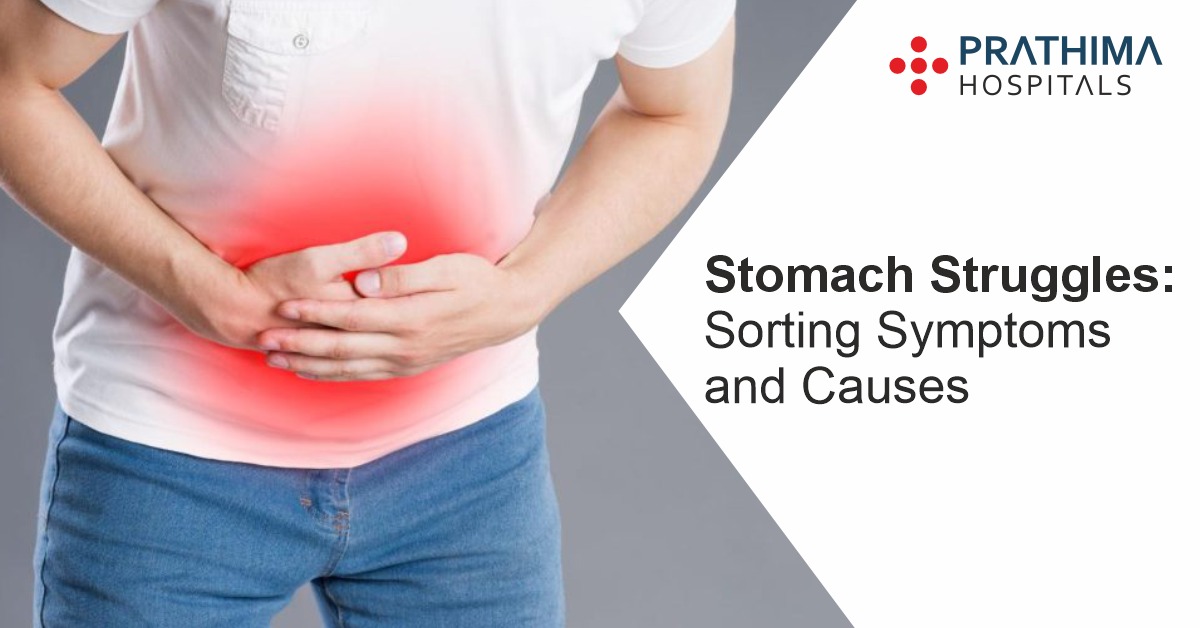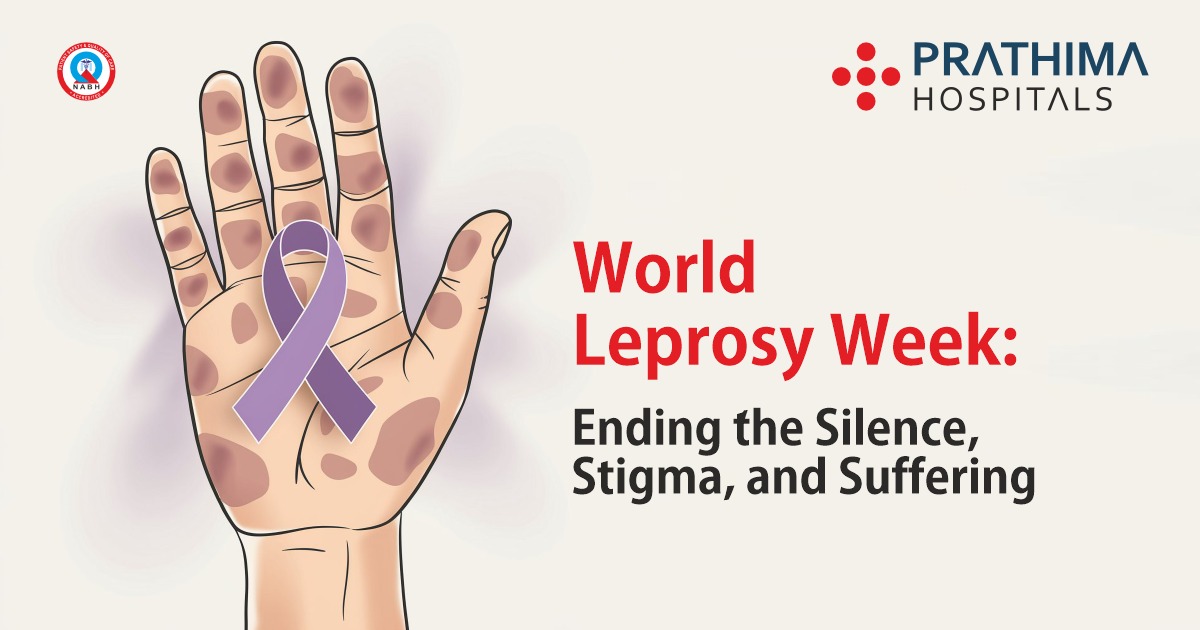Stomach Flu vs. Food Poisoning: Symptoms, Causes, and Key Differences!

Stomach Flu vs Food Poisoning
Introduction:
Stomach discomfort and digestive issues are common occurrences that can be caused by various factors. According to the Best Gastroenterologist in Hyderabad, two prevalent conditions that often get confused due to similar symptoms are stomach flu (gastroenteritis) and food poisoning.
While both can lead to gastrointestinal distress, they are distinct in terms of their causes and treatments. In this comprehensive article, we will explore the symptoms, causes, and key differences between stomach flu and food poisoning.
I. Stomach Flu (Gastroenteritis):
Stomach flu, medically known as gastroenteritis, is an inflammation of the stomach and intestines primarily caused by viral infections. It is a highly contagious condition that can affect people of all ages.
The most common culprits behind stomach flu include norovirus and rotavirus, although several other viruses can also be responsible. Let’s delve into the details of stomach flu:
Symptoms of Stomach Flu:
- Diarrhea: One of the hallmark symptoms of stomach flu is diarrhea. Diarrhea is defined by the frequent occurrence of loose (or) watery bowel movements. The inflammation in the gastrointestinal tract disrupts the normal absorption of water, leading to increased fluid in the intestines and loose, unformed stools. Diarrhea can vary in severity, from mild to severe, and may be accompanied by cramping and urgency.
- Nausea: Nausea is a common symptom of stomach flu and can range from mild queasiness to severe, persistent feelings of the need to vomit. It often precedes vomiting but can also occur without vomiting.
- Vomiting: Vomiting is another common symptom of stomach flu. It is the forceful expulsion of stomach contents through the mouth and is often the body’s way of expelling irritants or toxins. Vomiting can be frequent and is usually accompanied by nausea.
- Abdominal Cramps: Individuals with stomach flu often experience abdominal cramps or discomfort. These cramps can range from mild to severe and may be intermittent or persistent.
- Fever: Many people with stomach flu develop a mild to moderate fever. The fever is usually a sign that the body is responding to the infection. The body’s elevated temperature can help combat the virus responsible for the illness.
- Muscle Aches: Muscle aches, also known as myalgia, are a common symptom of stomach flu. They can be generalized or localized to specific muscle groups and are often associated with feelings of weakness and fatigue.
- Headaches: Headaches can be a common accompaniment to stomach flu. They can vary in intensity and may be caused by a combination of factors, including dehydration and the body’s response to the infection.
- Dehydration: Due to the loss of fluids through diarrhea and vomiting, dehydration is a significant concern for individuals with stomach flu as per the Best Gastroenterologist in KPHB. Dehydration can lead to symptoms such as dry mouth, dry skin, dark urine, dizziness, and extreme thirst. Severe dehydration may require medical attention.
- Loss of Appetite: People with stomach flu often experience a significant loss of appetite. The symptoms of nausea, vomiting, and abdominal discomfort can make it challenging to eat, and individuals may not feel like consuming food.
- Fatigue: Stomach flu can be physically exhausting. The combination of diarrhea, vomiting, and other symptoms can lead to a feeling of weakness and fatigue.
Causes of Stomach Flu:
Stomach flu is most commonly caused by viral infections, including:
- Norovirus: This is the most common cause of stomach flu, often associated with outbreaks in crowded places, such as cruise ships and daycare centers.
- Rotavirus: A common cause of stomach flu in young children.
- Adenovirus: Though less common, adenoviruses can also cause gastroenteritis.
Treatment for Stomach Flu:
Stomach flu is typically a self-limiting condition, and most cases resolve on their own without medical treatment. The immediate priority is on sign control and preventing dehydration. Treatment options may include:
- Hydration: Drink clear fluids, such as water, oral rehydration solutions, and clear broths, to stay hydrated.
- Rest: Provide your body time to heal by getting surplus of rest.
- Medications: Over-the-counter medications like anti-diarrheal drugs and pain relievers can help manage symptoms.
- Avoiding Certain Foods: It’s advisable to avoid fatty, spicy, and dairy-rich foods during recovery.
- Antibiotics (in specific cases): If the cause is bacterial, antibiotics may be prescribed, but these are generally not effective against viral infections.
II. Food Poisoning:
According to the Best Gastroenterologist in Kukatpally, food poisoning is the result of consuming contaminated food, water, or beverages, leading to illness. Unlike stomach flu, which is primarily caused by viruses, food poisoning is typically the result of bacterial, viral, or parasitic infections. Let’s explore the details of food poisoning:
Symptoms of Food Poisoning:
- Nausea: Nausea is a common early symptom of food poisoning. It is the sensation of feeling sick to your stomach and is often accompanied by an urge to vomit.
- Vomiting: Vomiting, or the forceful expulsion of stomach contents through the mouth, is a typical symptom of food poisoning. It can provide temporary relief from nausea and is the body’s way of expelling harmful substances.
- Diarrhea: Diarrhea is another hallmark symptom of food poisoning. It involves the frequent passage of loose, watery, or sometimes bloody stools. The irritation and inflammation in the digestive tract lead to disrupted bowel movements.
- Abdominal Pain and Cramps: Individuals with food poisoning often experience abdominal pain and cramps. These can vary in intensity and may be localized or spread throughout the abdominal region.
- Fever: Some cases of food poisoning can lead to a fever. The body’s elevated temperature is a response to the infection and is aimed at combating the causative agent.
- Muscle Aches: Muscle aches, or myalgia, can accompany food poisoning. They can range from mild discomfort to severe pain and are often associated with a general feeling of weakness.
- Headaches: Headaches are a common symptom of food poisoning and can vary in intensity. Dehydration and the body’s response to the infection may contribute to headache development.
- Dehydration: Due to the loss of fluids through diarrhea and vomiting, dehydration is a significant concern in cases of food poisoning. Dehydration symptoms may include dry mouth, dry skin, dark urine, dizziness, and extreme thirst.
- Fatigue: Food poisoning can be physically exhausting. The combination of gastrointestinal symptoms, such as diarrhea and vomiting, can lead to feelings of fatigue and weakness.
- Loss of Appetite: People with food poisoning often experience a significant loss of appetite. Nausea and abdominal discomfort can diminish one’s appetite, leading individuals to lose their desire to eat.
- Weakness: Food poisoning can lead to feelings of weakness and a lack of energy, making it challenging for individuals to carry out their daily activities.
- Specific Symptoms: The specific symptoms of food poisoning can vary depending on the causative agent. For example, certain types of food poisoning, such as botulism, may lead to symptoms like double vision, difficulty swallowing, and muscle paralysis. In cases of Listeria infection, individuals may experience flu-like symptoms, including fever, muscle aches, and confusion.
Causes of Food Poisoning:
Food poisoning can result from a variety of factors, such as:
- Bacteria: Common culprits include Salmonella, E. coli, Listeria, and Campylobacter.
- Viruses: Norovirus and Hepatitis A are notable viral causes of food poisoning.
- Parasites: Protozoa such as Giardia and Cryptosporidium can lead to foodborne illness.
- Toxins: Toxins produced by bacteria, such as Clostridium botulinum and Staphylococcus aureus, can contaminate food and cause poisoning.
Treatment for Food Poisoning:
According to the Best Gastroenterologist in Kachiguda, the treatment of food poisoning depends on the specific cause and the severity of symptoms. In most cases, treatment includes:
- Fluid Replacement: Prevent dehydration by drinking clear fluids or oral rehydration solutions.
- Rest: Allow your body to recover by getting adequate rest.
- Medications: In some cases, healthcare providers may prescribe antibiotics or antiparasitic drugs.
- Dietary Changes: Avoid solid foods until the vomiting and diarrhea subside. Start with bland foods like rice, applesauce, and toast.
- Medical Attention (in severe cases): Seek medical attention if symptoms are severe, persistent, or if you have high fever, bloody diarrhea, or signs of dehydration.
Fundamental Distinctions in between Stomach Flu & Food Poisoning are:
- Causes: The primary distinction lies in the causes. Stomach flu is caused by viruses, while food poisoning results from consuming contaminated food, often due to bacteria, parasites, or toxins.
- Transmission: Stomach flu is highly contagious and can spread through person-to-person contact or contaminated surfaces, while food poisoning is generally contracted through the consumption of contaminated food or water.
- Duration: Stomach flu typically lasts a few days to a week, while the duration of food poisoning can vary depending on the causative agent and the individual’s immune response.
- Treatment: The treatment approach differs, with stomach flu primarily managed by symptom relief and hydration, whereas food poisoning may require antibiotics or antiparasitic drugs in some cases.
- Prevention: Preventing stomach flu involves practicing good hygiene and avoiding contact with infected individuals, while preventing food poisoning entails safe food handling and preparation practices.
Conclusion:
Stomach flu (gastroenteritis) and food poisoning are both gastrointestinal conditions that share similar symptoms but differ in their causes and treatment approaches. Understanding these differences is crucial in ensuring the appropriate care and management of these conditions.
While stomach flu is primarily viral and highly contagious, food poisoning results from contaminated food and can be caused by bacteria, viruses, or parasites.
Treatment for both conditions focuses on symptom relief and hydration, but in some cases of food poisoning, antibiotics or antiparasitic drugs may be necessary. Practicing good hygiene and safe food handling is key to preventing these distressing digestive issues. If symptoms are severe, persistent, or if there are signs of dehydration, seeking medical attention is advisable for proper diagnosis and treatment.
.
.
.
.
.
For More Details:
📞:: 733 733 6600 | 040 4345 4345
🌐:: https://prathimahospitals.com/book-appointment/





